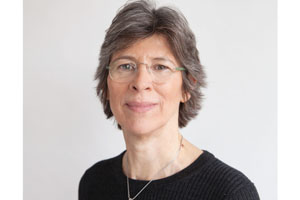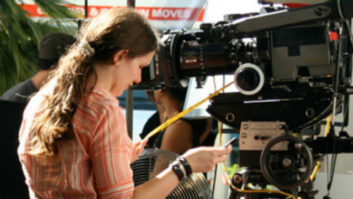
I started working in technology in the mid-1980s; more than 30 years ago. My early career was working on management information, billing and trading systems in the City of London. I moved into the media and broadcasting sector in 2003 when I joined BBC Technology.
Moving from the City to the BBC, I was pleasantly surprised to find a more diverse workforce and less hierarchical work culture. But what I did find was that media organisations were not very comfortable with technology. The prevailing attitude was to classify staff as either creative or technical, but never both.
Unsurprisingly, the women in the workforce gravitated towards the creative and editorial roles and the technology teams were almost exclusively men. So sadly the ratio of men to women in technical teams at the BBC was no better than at the other places I had worked and sometimes even worse.
The stereotyping of roles that reinforced the idea that creative people were bad at technology and technical people were not creative meant that a gulf grew up between the two. There was poor communication and trust. As a member of the technology team I felt there was a constant sense of disappointment that we couldn’t understand what the creative teams wanted and much less deliver it.
Perhaps because of this lack of communication the idea took hold that if the tech team built the right foundations and abstractions the creative team could create their own outcomes. Projects extended for years trying to build these foundations without delivering any usable outcomes.
Then came the explosion of digital online. The speed of change was now measured in months or weeks as new apps were created for online and smartphones. Two major changes happened at this same time; the wide scale adoption of agile methodology and product management. Suddenly, the technology behind the delivery of media was as important as the programmes themselves.
Working at the BBC at this time was extremely exciting. The BBC was a leader in delivering a complete online TV and radio catch-up service with iPlayer. The BBC was also forward thinking in how it engaged online and quickly rolled out iPlayer on smart phones and developed a presence on social media.
These changes in the software development process meant creative and technical teams came together into product teams and new roles in product management, design, front end development and user experience started to blend creative with technical. Communication became mandatory with daily standups, regular planning, design sessions and retrospectives.
I’d like to say that at this point, the number of women in technical roles greatly increased but unfortunately that hasn’t happened. Most engineering teams are still 90 per cent men and finding female software engineers is still a challenge.
From my 30 years of experience working in technology, it’s clear that there aren’t any inherent differences between male and female minds that make technology more challenging for women. I see two other factors at play: unconscious bias and inherent cultural biases. Culturally, there is clear evidence that we point our boys toward technology and our girls towards creativity.
The other issue is unconscious bias. We have in our minds a “type” that is good at technology and typically it has little cross over with how we stereotype women. When I started in technology the ‘geek type’ hadn’t been established and so it was easier for those around me to accept that I could be good at technology without being a geek. Now I believe it’s harder.
Many of the senior women in technology I’ve worked with started their careers in the more creative or interactive roles. They became responsible for managing tech teams as they progressed as leaders. In order to manage tech teams well they learnt the processes of building technology and how to communicate to the tech staff.
I’ve worked with some very successful women tech leaders and their success challenges a widespread misconception of what it means to be a technology leader.
However, women are still horribly under represented in technology, making up just 17 per cent of those working in the sector in the UK. But while change is not moving at the pace that we would like, at least there is a steadily growing awareness of the issue.
It is imperative that we continue to support women in the broadcast technology sector, not least because it is now well known that organisations that perform better overall are those which give women the same opportunities as men. A diverse and inclusive working culture will benefit not only women, but the industry as a whole. That is good for everyone.






